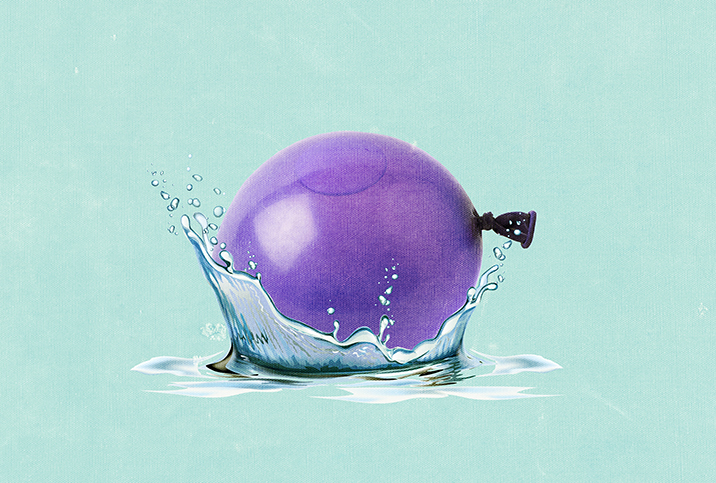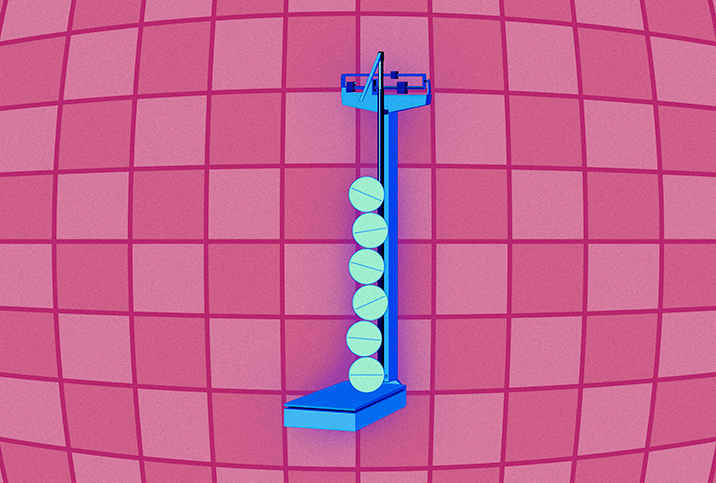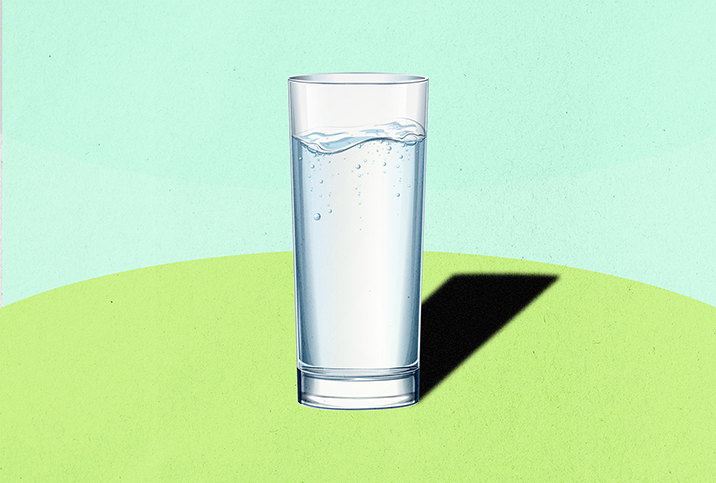What Is Water Retention and Why Does It Happen?

Water retention (also known as edema) is a condition often bandied about, however, it is only something to be concerned about when accompanied by other obvious symptoms.
For many people, water retention can be easily remedied by simple lifestyle changes, or it is something caused by temporary hormonal changes and may not need to be treated at all.
We all know that drinking water is important, as even mild dehydration of 1 percent to 2 percent water loss in the body can negatively affect cognitive performance.
Our bodies are full of water, making up 45 percent to 75 percent of a person's weight. Muscles are 70 percent to 75 percent water, whereas fatty tissue's water content varies between 10 percent and 40 percent. Men's bodies are made up of 60 percent water, while women's bodies are 55 percent water due to the variations in the muscle and fat compositions of the body.
"Water retention happens when you build up excess fluid. Your body's circulatory system and tissues retain water, which can swell your abdomen, feet, legs, ankles and hands," said Monte Swarup, M.D., a board-certified OB-GYN based in Chandler, Arizona, and the founder of Vaginal Health Hub.
Susan Lipinski, M.D., an OB-GYN at Obstetrix of Colorado, explained the myriad reasons people may retain water.
"Some of the most common are high salt intake, high carbohydrate intake, hormonal changes and prolonged sitting or standing," she said.
Why does it happen?
Water retention happens more frequently around a woman's period and can get worse with age, but pregnancy also creates it, Lipinski added.
"A woman has a large increase in water volume to support the pregnancy, and this can sometimes result in swollen ankles and hands," she said.
Water retention or unexplained swelling can sometimes signal a problem, but Lipinski assured that there would be other symptoms alongside it.
"It becomes a major concern when you start having high blood pressure and one part of your body becomes more swollen than it usually appears on a day-to-day basis," said Kuljit Kapur, D.O., chief medical officer at Transitions Care in Chicago.
These symptoms can be indicators of organ dysfunction, namely, the liver or kidneys. In older people, they can signify stroke, cardiovascular causes, peripheral vascular disease, a blood clot and more, Kapur explained.
If the fluid retention is coupled with severe fatigue, chest pain, shortness of breath, pelvic pain or yellowing of the skin, then you need to seek medical assistance, Lipinski added.
If water retention inhibits your life in any way, Kapur advised speaking to your physician so they can perform a full checkup.
Treatment
There are plenty of ways for you to deal with mild water retention yourself. Lipinski recommended using these methods to control bloating:
- Exercise more
- Reduce salt intake (the World Health Organization recommends less than 5 grams, or one teaspoon, per day for adults).
- Decrease refined carbohydrate intake
- Increased potassium intake
- Magnesium supplements
Swarup elaborated that potassium helps balance fluid in the body and increase urination. He added that although not definitive, studies indicate vitamin B6 and vitamin E, as well as magnesium and potassium, may help with PMS-related bloating and general water retention.
Lipinski advised that water retention caused by hormone fluctuations such as periods should improve after a few days. A study found fluid retention peaked on the first day of menstruation and was at its lowest during the middle of the follicular phase.
For anyone who is pregnant and experiencing sudden or severe swelling, it is important to see your doctor as soon as possible because it could be a sign of preeclampsia, Lipinski added. This is a serious condition signified by high blood pressure during pregnancy. Abdominal swelling during pregnancy can also indicate HELLP syndrome, a much rarer disorder that can also threaten the life of the mother and child.
The reason behind water retention in many instances could be a simple one: the body just needs more fluids.
"It's important to drink water and stay hydrated to help the body become less bloated," Kapur said.
The United Kingdom's National Health Service (NHS) recommends drinking six to eight glasses of water per day for optimum hydration. Check the color of your urine by using a chart, as anything darker than pale yellow can indicate a degree of dehydration.
Adequate hydration can help regulate body temperature, keep joints lubricated, prevent infections, deliver nutrients to cells, keep organs functioning properly, and improve sleep quality, cognition and mood, according to the Harvard T.H. Chan School of Public Health.
While some supplements can help, they should be used with caution. Kapur said some of her patients experiment with supplements or medications in order to diagnose themselves before coming to the clinic.
"The metabolism of the body can be thrown off from an endocrinological standpoint, and medications can alter certain symptoms, such as water retention, and make it far worse," Kapur said.
Editor's note: These statements have not been evaluated by the Food and Drug Administration. Our medical experts advise that you consult with your primary healthcare provider before you begin using a supplement. This information is not intended to diagnose, treat, cure or prevent disease.


















